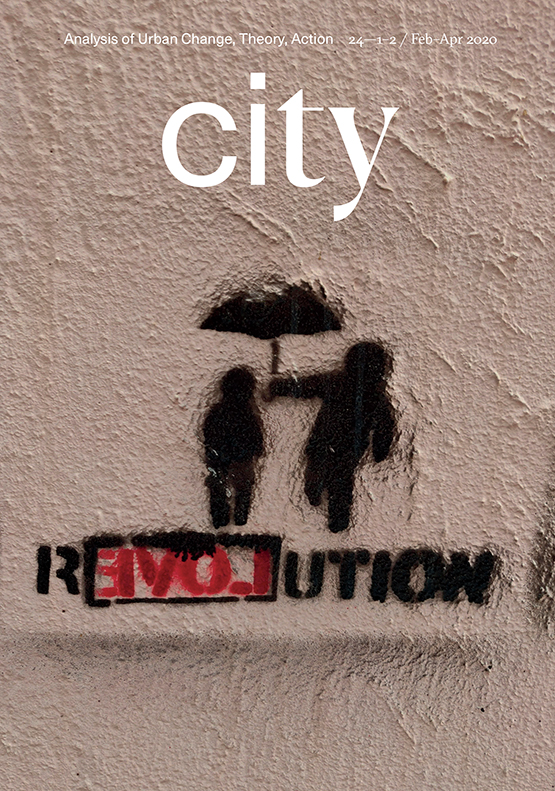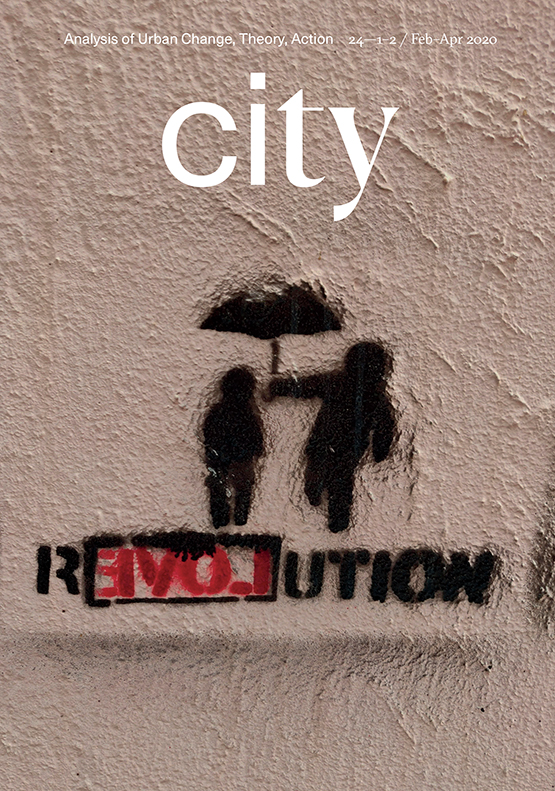Our double Issue 25(1-2) will come out soon – online first versions are already available here. While we wait for the printers to do their thing, we have some news to share regarding editorial changes. We are sad that our long time comrade, Dr Antonis Vradis, is stepping back from his editorial post but happy that he will remain as a member of the City Collective. And we welcome Dr Yimin Zhao who is stepping into the post. Below is more information about these two wonderful scholars who have shaped and will continue to shape debates at City.
Antonis Vradis joined City’s editorial board in 2011 and accompanied the journal through its late teenie years and early twenties. In one of his first contributions, he reflected on the murder of the 15-year-old boy Alexis Grigoropoulos in Athens on 6th December 2008 whose death triggered ‘the most severe acts of civil unrest the country had seen in its entire post-dictatorial (1974-) era’ (Vradis 2009, 146). In his most recent editorial, he engages again with the Greek state, ‘something of a flagship case in resistance against the crisis and austerity [that ] seems to have firmly joined in the line of the places where even the most meagre of rights are under assault, the places where even the most minuscule threads weaving together our everyday lives are slashed by vindictive and ruthless power’ (2019, 695). And it wouldn’t be Antonis if such dark and desperate observations weren’t coupled with his own optimism ‘that things can, and indeed will, change, as people confront and transform the dead-ends of the neoliberal project’ (2019, 696).
Antonis, an urban geographer with an anarchist heart, a study in Athens and a job in St. Andrews, has continuously published in and edited for City, worked collaboratively with other editors and authors and editing the alternatives section, following its creator Paul Chatterton. In recent times we particularly thank Antonis for his was part of the group that saw City through its transition to a non-hierarchical structure and collective governance in 2020. Whoever has or had the pleasure of working with him will know him for his collegiality, his commitment, integrity and radical care. His work engages with some of the most pertinent issues of our times, police brutality, the EU’s repressive and aggressive responses to migrants and immigration more generally and the global financial crisis and how it affected and continues to affect people’s daily lives.
Comrade, we’ll miss you and are grateful for your continuing commitment as a member of City Collective!
Please help us welcome to the Editorial Board, Dr Yimin Zhao, Assistant Professor in Urban Planning and Management at Renmin University of China. Trained as a human geographer (PhD at the LSE, 2017), his work has been focusing on state, space and politics in the urban process. He examines the political economy of Beijing’s green belts (an ecological label of the frontier of the urban) in his doctoral project. He finds that the Chinese state’s land business is by nature a total project, where a hegemony of urbanisation has been erected with ideological resources, political institutions, ecological masks, and changing social fabrics – all being wrapped up under a renewed territorial logic of the Party-state regime.
Yimin returned to Beijing in 2018 but only to find that this city had been rendered into a “lab” of unexpected urban changes. Since then, he has been increasingly attending to the process of intense deforming of the urban, signalled by, for example, the demolishing of millions of square metres of “unauthorised” buildings and the expelling of tens of thousands of migrant workers who were labelled “low-end” by local authorities. These observations motivated him to broaden the scope of research with two additional lines of inquiry: First, with renewed authoritarian techniques of governing the city, how have infrastructural lives of the ordinary people been transformed – and to what extent? Second, given that the global impacts of China have been significantly increased recently, how and how far is “Chinese urbanism” travelling abroad and producing urban effects elsewhere?
Yimin expresses his enthusiasm to contribute to the City editorship from his current location – geographically and intellectually. He will work with the other editors collectively to figure out ways in which observations and reflections from the “Global East” can contribute to the journal and bring alternative voices and perspectives for a more global critical urban scholarship.
Yimin, we look forward to your brilliant contributions to our editorial practice.
In solidarity,
City Editors




